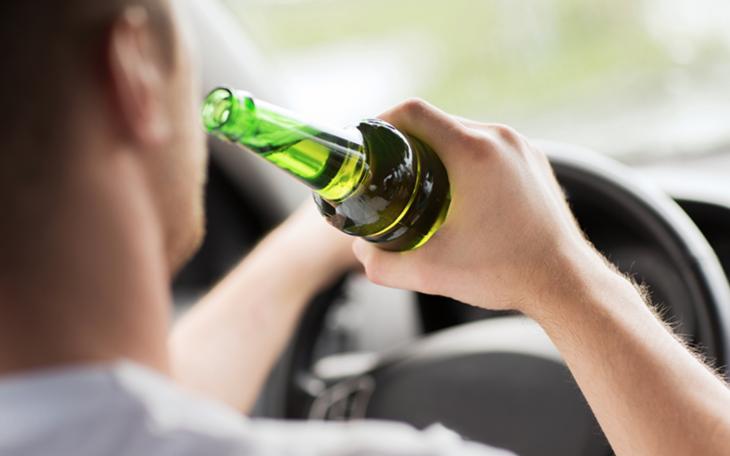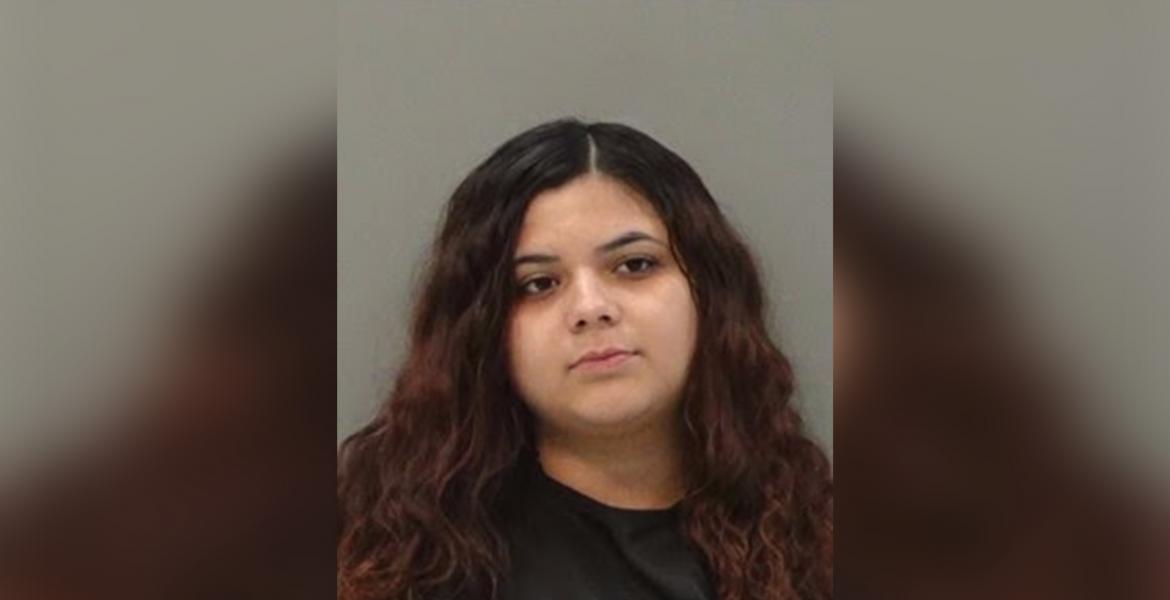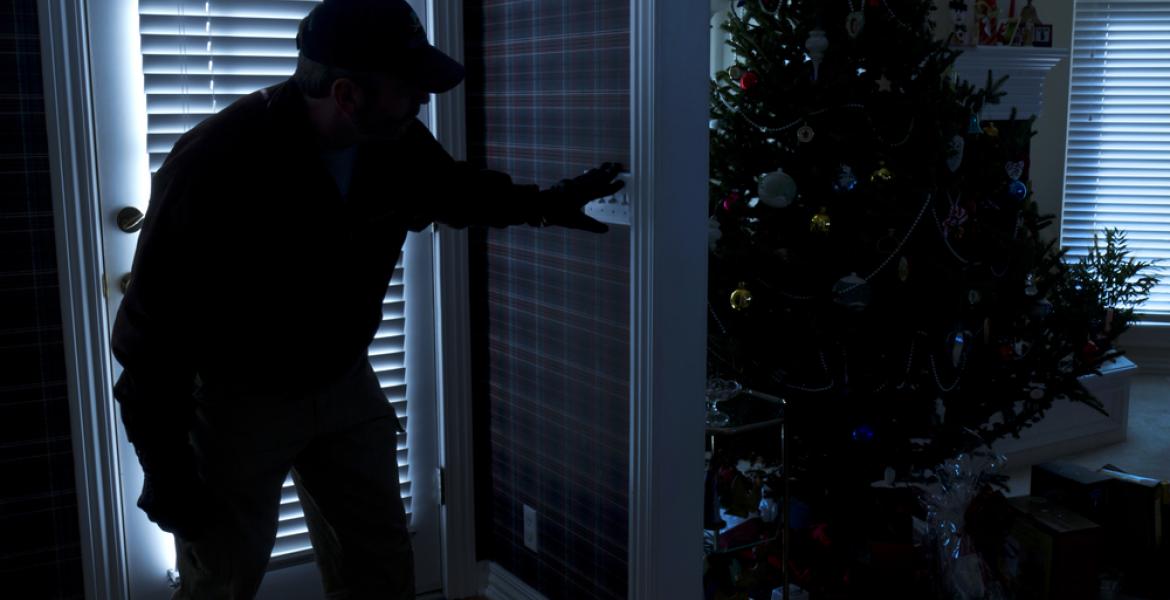“Ok, I’m gonna kill some niggas. I love you, ok babe, and you better take care of my kid. Don’t fuck around,” Detective Brian Elkins read the text message back in a small, padded interview room at the San Angelo Police Department.
Handcuffed to the leg of an armless chair, Daniel Uvalle, then just 17 years and four days old, looked shocked as Elkins repeated the text he’d sent to his girlfriend just minutes before the murders of Tabitha Freeman and Alvaro Carrillo.
“I said that?” Uvalle interrupted Elkins’ recitation of the message after the phrase beginning with “kill”. “I didn’t mean to put that.”
The interview, recorded after police apprehended Uvalle at a trailer home in Grape Creek on Sept. 1, 2013, was played back in the courtroom on day three of the capital murder trial against him on Thursday, the final piece of evidence entered before the state rested at 12:25 p.m.
Coming through fairly clear despite loud background noise, the jury listened and watched as Uvalle confirmed that he understood why he was being interviewed and received the news that he wasn’t brought in solely to talk.
“Daniel, there’s a warrant out for your arrest for capital murder,” Elkins told him at about five till noon.
“I didn’t do anything though,” Uvalle pleaded.
“I understand that,” Elkins continued. “But before you can talk to me—“
“You have to read me my rights,” Uvalle finished.
“I have to read you your rights,” the detective repeated.
Going through each of the Miranda warnings one-by-one, Uvalle acknowledged that he understood, between sips of water, finally waiving them all at the end after asking if it would take time to get himself an attorney.
“Johnny [Garcia] was drunk off his ass,” Uvalle began. “I ain’t gonna lie, I was drinking too…”
He said Johnny had been out in his car that night while Uvalle was at Garcia’s house, but then Garcia came by to pick him up.
“He told me that he did something really bad and I was going to help him out,” Uvalle claimed. “He told me that he killed two people.”
The seasoned detective stopped him there.
“But Daniel,” Elkins interjected, “you were there.”
After some encouragement to respond honestly, Uvalle continued what he later described as a tale of half-truths, admitting that both he and Garcia, as well as some unknown third person, had gone over to the apartment the first time, where the fight broke out.
The other guy had the handgun, Uvalle contended, and when they left, he stated, he and Johnny drove back to Garcia’s house, where he waited in the car. Garcia then emerged with a weapon, a rifle or shotgun, Uvalle said, and they drove back to the apartment.
As they arrived, Uvalle claimed, he tried to talk Garcia out of whatever he had planned.
Initially, Uvalle stated he hadn’t gone inside with Garcia, but then changed his mind and said he’d gone in but turned to leave, all the while pleading with Johnny to stop.
“I heard shots fired and I got scared…” Uvalle said. “I took off running…He tried to kill me, too…he was chasing me trying to kill me…”
Elkins interrupted Uvalle and reminded him that he needed to be honest if there was to be any chance of him saving himself. He told him he’d be going to jail and stated that five independent witnesses had placed him at the scene. He then asked why Garcia was so mad he felt he needed to kill two people.
“He said something about he was getting his ass whooped or something,” Uvalle said. Then, after some consideration, “I guess this is the second time getting his ass whooped.”

Above: Johnny Garcia in a booking photo at the Tom Green County Jail shortly after the crime.
Uvalle told Elkins he hadn’t been carrying a gun that night, but when confronted with the mention of the five eyewitnesses, he quickly changed his tune. He told Elkins Garcia had given him the shotgun and asked him to hold it before he fired the other weapon.
According to Uvalle’s account in the interview, after Garcia fired on Alvaro Carrillo, Jr., he ran, with Johnny Garcia trailing behind like a madman, attempting to kill him.
This later changed as the interview progressed, and Uvalle admitted to getting in the car with Garcia after the shooting, he placing his gun in the backseat, while Garcia held his next to him.
He didn’t stay in the car long, however. According to Uvalle, he didn’t want to be in the vehicle with Garcia and asked him to drop him off in the street, which he did, and then Uvalle spent some time sleeping in a field off of N. Bryant before walking to Grape Creek to see his girlfriend, where he remained until officers located him some eight hours later.
“You walked to Grape Creek?” Elkins inquired with an obvious tone of disbelief.
Uvalle swore up and down that he had, but Elkins wasn’t buying it. ‘No you didn’t,’ he said, but Uvalle maintained his story. Only later in the interview would he concede that Garcia had dropped him off shortly after the murders.
Finally, Elkins turned the conversation to Uvalle’s cell phone, asking if he’d made any calls or received any messages on the night of the murders.
Uvalle first stated he hadn’t, but when Elkins told him he’d be able to get records, Uvalle slowly began adding names and numbers to a list of individuals he’d contacted in the early morning hours Sept. 1.
Reading back a series of messages sent between Uvalle and his girlfriend, Ariel Gonzalez, and another alleged girlfriend named Emily, Elkins questioned Uvalle on the content of the messages.
At 1:47 a.m., Elkins testified, Uvalle sent a message to Gonzalez that stated, “We fidna ride on some niggas. I love you.”
At 2:55 a.m. he messaged Emily, “I’m calling you Emily ‘cause of Johnny T. Putting in work, I might get locked up.”
Sometime thereafter, Gonzalez responded, “When y’all get done handling up on on them niggas, you should bring that beer over here and drink with me.”
At 3:03 a.m., Uvalle responded, “Ok. I’m gonna kill some niggas. I love you, ok babe, and you better take care of my kid. Don’t fuck around.”
Gonzalez responded shortly thereafter, texting, “Babe, please don’t do nothing stupid. I need to see you tonight. I love you.”
Uvalle then sent a final message at 3:08 a.m.: “Babe, I need to handle this shit. We’ve already punked them. We’re going to merk them, ok.”
“Merk”, Uvalle clarified on the recording, means to kill someone.
After reading the messages back to Uvalle, Elkins was seeking answers. Uvalle had already told him repeatedly that he hadn’t had anything to do with the murders, but the use of “I” and “kill” and “we” indicated otherwise.
“That was Johnny…” Uvalle responded. “That’s what Johnny was saying…Johnny was telling me and I was like, ‘dude, don’t’…I was just putting what he was saying. I’m not going to lie to my girlfriend.”
At 3:18 a.m., San Angelo emergency dispatch received a call for shots fired at 1516 Greenwood. Responding officers located the bodies of 22-year-olds Alvaro Carrillo, Jr. and Tabitha Freeman.
Witnesses on scene named Johnny Garcia as the shooter and Daniel Uvalle as an accomplice, who had held them at gunpoint.
Uvalle was apprehended around between 10:45 and 11:45 a.m. on Sept. 1, and during his interview while in custody he told Elkins that Johnny Garcia had hit the road for San Antonio.
Garcia was apprehended in Kimble County on Sept. 1, and was picked up by two SAPD detectives that afternoon. They were back in San Angelo by 4:30 p.m.
After the jury heard the interview and Elkins clarified some of the statements, defense attorney Melvin Gray asked the detective—as he had all prior witnesses—if anyone had specifically stated that Daniel had threatened to shoot or kill them or anything of the manner.
Elkins testified that at least one, if not two witnesses had told him Uvalle had pushed his gun into their faces that night and told them something to the effect of, “don’t get up or I’ll shoot”.
“A conditional threat?” Gray inquired.
“A threat,” Elkins said flatly. He made no distinction.
Gray passed the witness.
At 12:35 p.m., the state, represented by 51st District Attorney Allison Palmer and Meagan White, rested their case.
Back at 2 p.m. following a lunch break, Gray announced that the defense had no witnesses and rested its case after a charge conference at 2:23 p.m.
After reading the charge, White addressed the jury first, explaining the various elements of the crime, including date, location, who was killed, what was used, and who was involved in the killings, among other things.
The only contested element out of all of it, however, White explained, was whether or not Daniel acted as a party to the crime. In order to be considered a criminally responsible party, the state had to prove that he was aware that the murders would be committed—or at least should have anticipated it—and that he in some way aided, promoted, encouraged or attempted to assist in the murders.
Defense attorney Melvin Gray picked up on the party element when he made his closing statements, stressing that mere presence alone does not constitute being a party to a crime.
Gray talked about the two exits in the apartment and asserted one could have easily left through the opposing door. He explained that Uvalle didn’t know most of those present, including the female victim, Tabitha Freeman. He said there was no motive.
“He promoted it by being stupid and being there and I submit to you that it takes more than that to [sentence a man to 50 years] when he’s 17 years old,” Gray said. “[There has been] no plan or plot, no motive…it was a spontaneous act by a crazy person.”
Judge Gossett interjected that Gray would not be allowed to discuss the effect of the charge, and instructed him to continue without any further reference to the amount of time Uvalle would have to serve.
Gray then continued on for several minutes, repeating that his client had stood idly by as Garcia, a loon, went on a rampage. The jury, for the most part, propped their heads in their hands and waited.
When Palmer got up to close for the state, she immediately went after Gray’s own closing statement.
“Mr. Gray said a lot of things in his arguments that were contrary to how I heard them,” she said. “So I want to remind you to remember things the way you heard them.”
She went over the facts of the case as heard in witness testimony, including that Uvalle had first entered with a handgun, that he had disarmed Daniel Weston in the apartment, that he had come back after the first trip with Johnny and that he hadn’t fled.
She recalled testimony from Elkins that witnesses had stated they had been told not to get up or Uvalle would shoot, and that at one point, Garcia, the shooter, had turned his back on Uvalle, who was armed, which she said meant Garcia felt he could trust Uvalle. They were a team.
“Not a threat?” she said, with reference to Gray’s argument that Uvalle had merely stood by. “Having a gun pointed at you is not a threat? There has to be something verbal to it? Those kids were scared to death…” she said.
Bringing up a smiling photo of Alvaro Carrillo, Jr. on the day that he died, holding two nephews at a family reunion, Palmer reminded the jury of the families the victims left behind.
“This didn’t happen in a vacuum,” she said. She finished with images of Tabitha Freeman.
After 30 minutes of argument, Palmer asked the jury to find Uvalle guilty and thanked them for their time and service.
The jury filed out of the room and the families waited.
To find out what happened, read the follow-up story here.
Subscribe to the LIVE! Daily
Required






Comments
Listed By: Jim G.
Soooo...this little wanna be gangbanger gets his butt whipped and decides he going to show how hard he is by shooting people? Oh but surely not over drugs, oh no.
We'll see how tough he is spending his life in prison. Good riddance.
- Log in or register to post comments
PermalinkPost a comment to this article here: